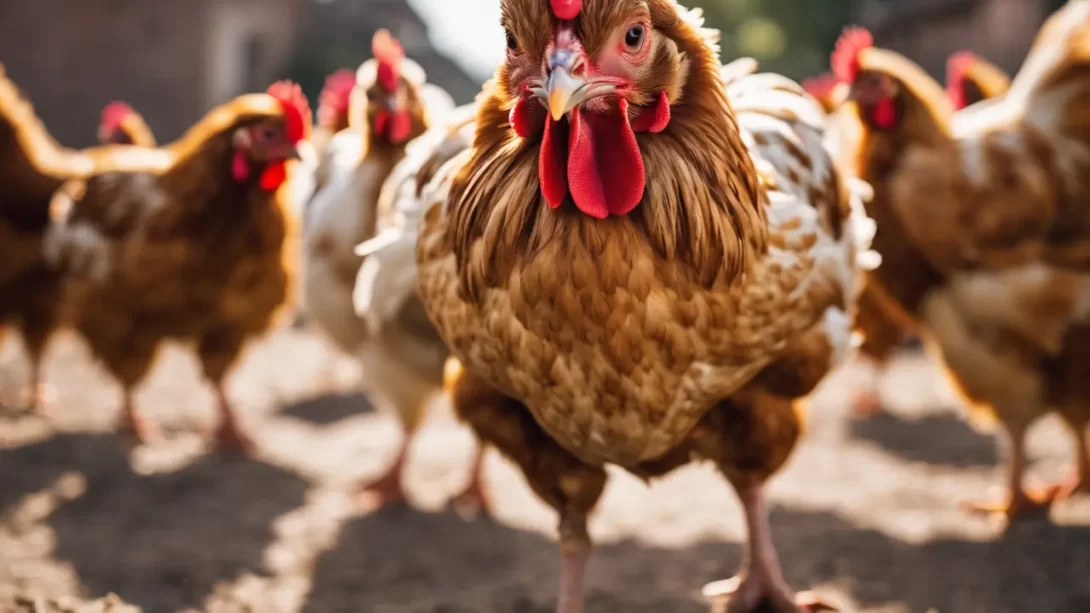Chickens, known for their distinctive behaviors and characteristics, have a unique anatomy and physiology that raises many curious questions. One such question pertains to their excretory system: Do chickens pee like many other animals? Understanding this aspect of chicken biology is not only fascinating but also crucial for those raising chickens.
Chicken Anatomy and Physiology
Chickens, like all birds, have a different anatomical structure compared to mammals, particularly in their digestive and excretory systems. Unlike mammals, which have separate openings for excretion and reproduction, chickens have a single opening called the cloaca. The cloaca serves multiple functions, including waste elimination, reproduction, and egg-laying. This unique structure significantly influences how chickens process and eliminate waste.
How Chickens Excrete Waste
Chickens do not urinate in the traditional sense that mammals do. Instead, their waste elimination process involves expelling both solid and liquid waste simultaneously through the cloaca. The kidneys of chickens filter waste from the bloodstream, but instead of excreting it as liquid urine, the waste is combined with feces and expelled together as a single substance. This efficient system means that chicken waste typically appears as a mixture of feces and a white, pasty substance, which is the equivalent of mammalian urine.
The Composition of Chicken Waste
Chicken waste primarily consists of two parts: feces and uric acid. The feces come from the digestive tract, while the uric acid is the product of the kidneys filtering nitrogenous waste from the bloodstream. Unlike mammals, which excrete waste in the form of urea dissolved in urine, chickens excrete uric acid in a semi-solid form. This acid is the white, pasty substance often seen in chicken droppings. Uric acid serves a similar function in chickens as urine does in mammals, in that it helps to rid the body of nitrogenous waste.
Comparing Chicken Waste to Mammalian Urine
The waste elimination process in chickens is markedly different from that of mammals. Mammals excrete liquid urine to remove waste products from the body, whereas chickens eliminate a more concentrated waste in the form of uric acid. This method of excretion is more water-efficient, an evolutionary advantage for birds. It allows them to conserve water, which is particularly beneficial for birds that may not have regular access to water sources. In contrast, the urinary system of mammals requires a significant amount of water to process and expel waste.
Implications for Chicken Care
Understanding how chickens excrete waste has practical implications for those raising chickens. The unique composition of chicken waste means that it can be quite potent and requires regular cleaning to maintain a healthy environment in chicken coops. The high nitrogen content in chicken waste makes it an excellent fertilizer, but it needs to be composted properly before use to avoid damaging plants. Coop design should also consider the efficient removal and management of waste to prevent the buildup of ammonia and maintain good air quality.
Managing Waste in Chicken Coops
Effective management of chicken waste is crucial for maintaining a healthy and hygienic environment for the birds. Regular cleaning of the coop is essential to prevent the accumulation of waste and the associated odors. It’s also important to provide adequate ventilation in the coop to reduce humidity and the concentration of ammonia, which can arise from the breakdown of uric acid in the droppings.
Additionally, the bedding material in the coop plays a significant role in waste management. Materials like straw, wood shavings, or sand can help absorb the waste, making it easier to clean. Some chicken keepers employ a deep litter method, where bedding material is periodically added on top of the existing layer, allowing the waste to compost over time. This method not only simplifies cleaning but also contributes to the creation of compost for gardening purposes.
Health Considerations
From a health perspective, it’s important to monitor the appearance of chicken droppings as changes can indicate health issues. For instance, an excess of watery droppings might suggest dietary imbalances or health problems. Regular observation and maintenance of hygiene in the coop are essential in ensuring the health and well-being of the chickens.
Conclusion
In conclusion, chickens do not pee in the same way mammals do. Instead, their excretory system combines both solid and liquid waste into a single expulsion through the cloaca. This efficient system, characterized by the excretion of uric acid instead of liquid urine, reflects an evolutionary adaptation to conserve water. Understanding this aspect of chicken physiology is crucial for effective chicken care, emphasizing the importance of proper waste management in coops. By maintaining cleanliness, ensuring good ventilation, and monitoring the health of the chickens through their waste, chicken keepers can ensure a healthy environment for their birds. This knowledge underlines the fascinating adaptability and efficiency of the avian excretory system.



